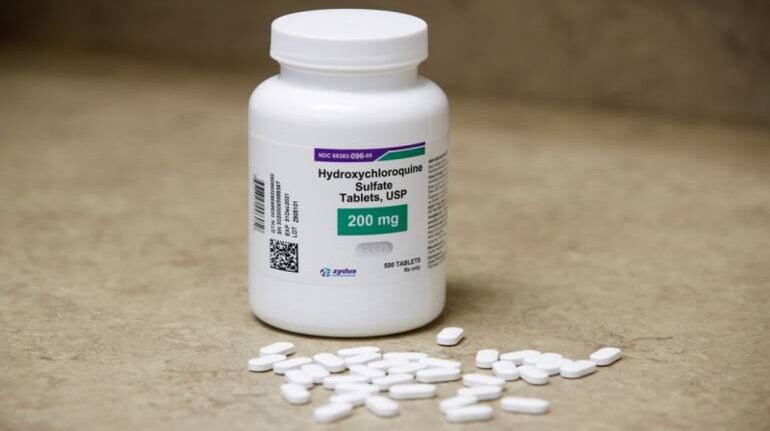
The World Health Organisation (WHO) on June 3, decided to resume clinical trials of hydroxychloroquine (HCQ). The WHO is testing HCQ on patients as part of its Solidarity Trial, a global effort to find a treatment for COVID-19. Just two weeks ago, the global health agency had paused the HCQ trial citing safety concerns.
According to WHO Director-General Tedros Adhanom Ghebreyesus, based on available data, the Solidarity Trial Data Safety and Monitoring Committee recommended that there are no reasons to modify the trial protocol. The Executive Group endorsed the continuation of all arms of the trial, including the use of hydroxychloroquine.
Here is an explainer on what prompted the WHO to change its mind and whether the debate on HCQ will ever be settled.
Lancet HCQ study
On May 22, Lancet had published an independent study authored by Prof Mandeep Mehra, Dr Sapan Desai, Zurich cardiologist Frank Ruschitzka and Dr Amit Patel. It was funded by William Harvey Distinguished Chair in Advanced Cardiovascular Medicine at Brigham and Women's Hospital, Boston.
The study concluded that HCQ had no benefit in the treatment of COVID-19 patients; in fact, it causes more harm in the form of heart diseases and death. Lancet study assumes significance, as it is the largest study so far and claims to have analysed data of 15,000 COVID-19 patients on HCQ from 671 hospitals across six continents. The observational study compared the patients who had received the drug, with 81,000 who did not. The study is a peer-reviewed one, which adds a safety net compared to dozens of pre-print studies.
Following the study, the WHO decided to temporarily pause the trial and asked for a safety review. The Lancet study has also opened scientific and political faultlines. Based on the WHO's decision, countries such as France, the UK, Italy and Belgium have stopped the trial, while India, Brazil, Russia and Spain decided to back it. India and Brazil have expanded the use of HCQ as prophylactic to prevent COVID-19 infection in healthcare and other frontline workers against COVID-19.
But scientists the world over and the media have begun to spot discrepancies in the data used. For instance, the data related to Australia and Africa was incompatible with government reports. Major hospitals that were part of the study denied being connected with the database, managed by a little-known analytics company called Surgisphere run by Desai, the co-author of the Lancet paper. All this pointed to serious lapses of data integrity.
Finally, Lancet has published an "expression of concern" about the paper, and said the co-authors of the study who were not from Surgisphere had commissioned an independent audit into the provenance and veracity of the data. Later they have retracted the study.
WHO's flip-flop
Many scientists have called the WHO decision to suspend HCQ trial as a knee-jerk reaction. They expressed concern over the health agency's decision to pause the trial midway based on an observational study with questionable data and statistical methodology. The Council of Scientific and Industrial Research (CSIR) Director-General Shekhar Mande along with Institute of Genomics and Integrative Biology (IGIB) Delhi Director Anurag Agarwal and Chennai Mathematical Institute (CMI) Chennai Director Rajeev Karandikar have written to the WHO and asked the global health body to resume trial of HCQ.
Scientists also have pointed out that the UN health agency jumped the gun despite evidence of safety regarding HCQ is well established. It has been used for decades in the treatment of malaria, lupus, and rheumatoid arthritis.
Is the debate on HCQ settled?
Of course not. HCQ is an age-old, inexpensive drug that rose to global prominence after US President Donald Trump endorsed it as the 'biggest game-changer' in COVID-19 treatment. Most countries now are giving HCQs to treat COVID-19 patients and also as prophylaxis - to prevent people from acquiring infection. But the drug is yet to be proved that it works meaningfully in a large, well-conducted randomised control study (RCT).
Solidarity Trial could potentially answer that question. Scientists give higher weightage to RCTs over observational studies. Observational studies have issues like confounding and selection bias. Confounding refers to an outside variable that influences the outcome of the study. Even the Indian government, which is a proponent of HCQ, is also basing its decision to expand the drug use on an observational case-control study.
So far two RCTs are published. One by Chinese researchers was on whether HCQs have any benefit compared to standard of care in COVID-19 treatment and the other by the University of Minnesota researchers didn't find significant evidence that HCQs prevent healthy people exposed to someone with COVID-19 from getting the disease caused by the coronavirus. Analysts say the Chinese trial is an underpowered one with just 109 patients. The Minnesota study was decently large with 800 adults.
While good and rigorous scientific research should be deciding the benefit of HCQ in COVID-19 treatment and prevention, analysts say that political agenda is affecting the decisions.
Discover the latest business news, Sensex, and Nifty updates. Obtain Personal Finance insights, tax queries, and expert opinions on Moneycontrol or download the Moneycontrol App to stay updated!